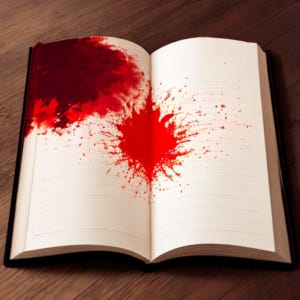Sunday Salutations and Editing (Part One of Three)
Writing Updates...
This is going to be a three-part blog, so look forward to more next week. The first topic is self-editing! Next week will be about editing with a partner. And the last one will be about how you know when to send something out.
Self-Editing or Self-Revision
Here, I am not talking about self-censorship. I am talking about the process and what it takes to be able to sit down with a piece that you have written and edit it without an outside party. I am luckier than most writers, in that I have a partner who writes with me, who can use his fresh eyes and edit items I have written. However, I know that many do not have that, just as I know there are times when I do not have Tod around to proofread, sanity check, or otherwise polish my writing.
So, what do I do when Tod cannot review my writing, besides pouting? Here is the short list:
1. Wait between writing and editing.
2. Set a limit to the number of editorial passes.
3. Have a goal for each edit.
4. Listen to your piece being read out loud.
5. Don’t edit when upset.
To give a little more description of what I mean:
Wait between writing and editing
I wait between writing and editing. This is easier for me, since Tod usually has a pass after I write. Time in between really does help. For short stories, I try to wait at least a week. For longer pieces, I try to take a longer break between the reviewing process a little so I can come back with fresh eyes. For me these fresh eyes are most important on the last review, where I am looking at grammar. This means that I prefer to edit when I am rested, and not after a long writing session.
Set a limit to the number of editorial passes
I set a limit to how or what type of editing I am doing. For example, if the item has a hard deadline or I am up against a close deadline, I aim for one pass and try to make minimal changes focusing on grammar. (This bleeds over a little into number 3, have a goal for the edit.)
Alternatively, if I have more time or no deadline. I often create a schedule and set limits there. I am one of those writers that without some type of structure could go round and round on editing a piece over and over. I know a few writers that struggle to finish anything because of this.
My advice in this circumstance is to set a limit on the number of self-edit passes. I set a limit to the number of times I will review a piece all the way through. Good, bad, or otherwise my current goal is three to five times. Why five? Because I need a limit…
Once is just to get the words on the page.
Twice is to review structure.
Thrice is to color in details.
Fourth is for grammatical review.
And last, because 5 is a prime number.
Have a goal for the edit
Having a goal for the edit means that when you edit, you have an idea of what you want to change, improve, or polish in the piece. I do not go into an edit wanting to make it completely polished in one pass. That leads to madness and I am already mad enough (Bhahaha!). At least, when I try that method, I end up feeling overwhelmed.
So, instead I go into each edit with a specific goal. Notice that this dovetails into the limited number of editing passes. I try and limit myself to five different reviews of a draft. To remind you: once to get words on the page, second for structure, third for details, fourth for grammar, and a the final fifth for a prime number spit polish.
Listen to your piece being read out loud
I use Word to read the writing to me.
Yes, you read that right. I cheat in a way. I have Word read the writing to me. Therefore, if you notice that I have messed up homophones, sorry. I was editing by ear. I do also read along with it, but I mostly focus on listening.
For me, editing at this level is to remove discordant notes or sounds. Don’t get me wrong, grammar is important. However, it is not as important as the piece flowing and sounding appropriately authentic or sometimes conversational.
(Word’s online voices sound way better than the local voices, but you need a decent internet connection for it. -Tod)
Don’t edit when upset
I am not sure how many of you will have this last problem, but one of my other rules is it doesn’t edit when upset. (You can write when upset, but don’t edit…)
Take a break if your personal demons come calling and want to shred your work. Yes, I have learned this one from both observation and experience. The demon of the delete key needs to be kept in check with a salt circle sometimes. Otherwise, all the words disappear.
Later!
I hope everyone is having a wonderful weekend. Mine has been a bit emotional but is looking better every hour.
~ Anna (and Tod)







